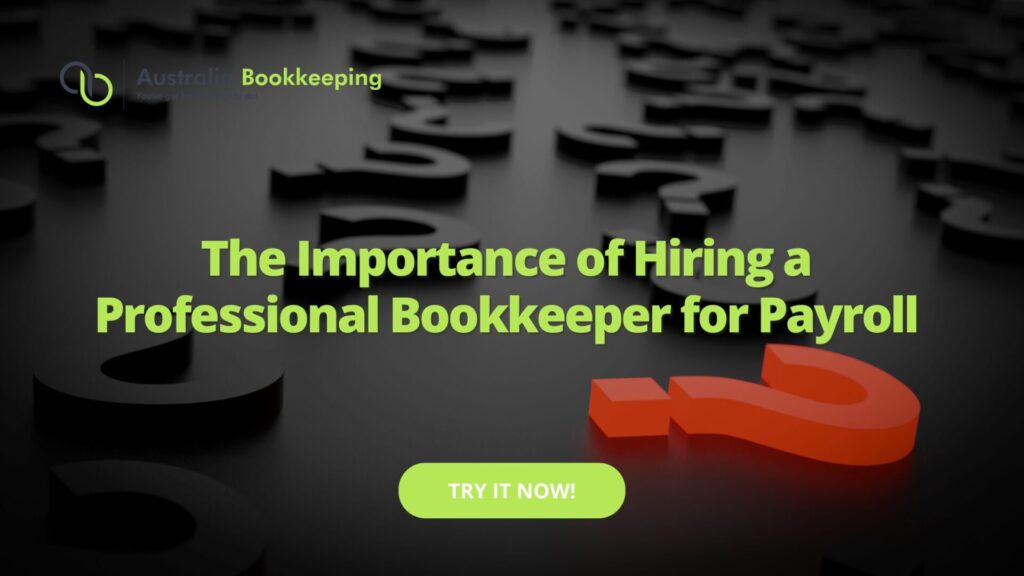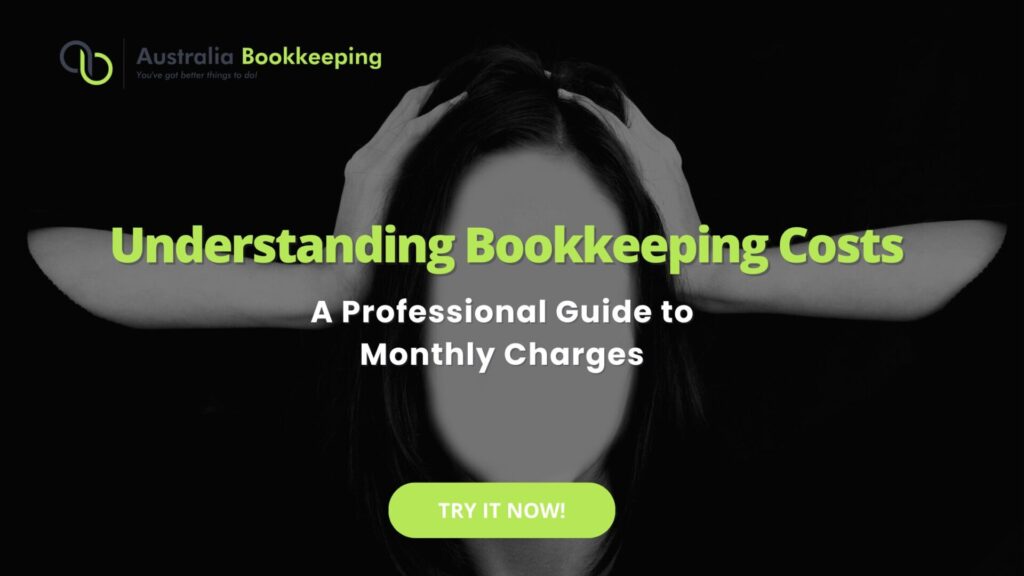Why Hire Us? | Free Call With Australia’s Leading Bookkeepers
The Importance of Hiring a Professional Bookkeeper for Payroll 1. Introduction When it comes to managing payroll in your business, hiring a professional bookkeeper can make all the difference. Whether you’re in Melbourne or Adelaide or anywhere in Australia, having a skilled and experienced bookkeeper can save you time, money, and headaches. With the advancements in technology, online bookkeeping services and virtual bookkeeping have become increasingly popular, providing small businesses with efficient and accurate solutions. Schedule a free call with the most reliable and affordable bookkeepers in Australia. In this blog post, we will explore the importance of hiring a professional bookkeeper for payroll, and why opting for the best virtual bookkeeping services, such as those offered in Melbourne and Adelaide, can benefit your business. 2. The role of a bookkeeper in payroll management A professional bookkeeper plays a crucial role in managing payroll for your business. They are responsible for ensuring that your employees are paid accurately and on time, while also complying with all tax and employment laws. With their expertise, they can handle tasks such as calculating wages, deducting taxes, and issuing paychecks or direct deposits. Moreover, a bookkeeper can also assist in maintaining accurate records and generating reports related to payroll. This is essential for monitoring expenses, filing taxes, and providing financial information to stakeholders. By hiring a bookkeeper, you can trust that all payroll-related tasks will be handled efficiently and with utmost attention to detail. When it comes to choosing a bookkeeper, it is essential to opt for a professional with experience and knowledge in payroll management. This will ensure that all aspects of your payroll are handled accurately and in compliance with the law. 3. Benefits of hiring a professional bookkeeper for payroll Hiring a professional bookkeeper for payroll brings many benefits to your business. Firstly, it saves you valuable time and energy that can be better invested in core business activities. By delegating your payroll responsibilities to a bookkeeper, you can focus on growing your business and enhancing productivity. Secondly, a professional bookkeeper ensures accuracy and compliance with payroll laws and regulations. Mistakes or non-compliance can lead to penalties and legal repercussions, which can be costly for your business. With their expertise, a bookkeeper will handle all calculations, deductions, and tax filings accurately, reducing the risk of errors. Additionally, a bookkeeper maintains accurate records and generates comprehensive reports. These reports are essential for monitoring cash flow, preparing budgets, and making informed financial decisions. With clear and organized payroll records, you also have solid documentation to support audits or inquiries from tax authorities. In conclusion, hiring a professional bookkeeper for payroll is a wise investment for your business. Their expertise will ensure accurate and compliant payroll management, saving you time, minimizing risks, and providing reliable financial information. 4. Ensuring accuracy and compliance with regulations When it comes to payroll, accuracy is crucial. From calculating employee salaries and deductions to filing tax forms, there is no room for error. This is where a professional bookkeeper shines. They have extensive knowledge and experience in handling payroll tasks and staying up-to-date with the latest regulations. By hiring a professional bookkeeper, you can be confident that your payroll will be accurate and compliant with all applicable laws. They will ensure that all necessary taxes are withheld, that employees are paid correctly, and that all necessary filings are submitted on time. Moreover, a bookkeeper can assist with staying on top of changing regulations and adjusting your payroll processes accordingly. They will monitor updates in tax laws, minimum wage requirements, and any other legal changes that may impact your payroll operations. In addition to accuracy and compliance, a professional bookkeeper can also provide valuable advice on strategies to minimize tax liabilities and optimize your payroll processes. They can help you identify potential cost savings and recommend best practices for efficient payroll management. By entrusting your payroll to a professional bookkeeper, you can have peace of mind knowing that your employees will be paid accurately, taxes will be handled properly, and your business will stay compliant with all relevant regulations. This not only minimizes the risk of penalties and legal issues but also ensures fairness and transparency in your payroll system. 5. Time-saving and cost-effective measures A professional bookkeeper can offer a wide range of time-saving and cost-effective measures when it comes to managing your payroll. With their expertise and knowledge, they can streamline the entire process, freeing up valuable time for you and your staff. First and foremost, a bookkeeper can use specialized software and tools to automate many payroll tasks. This means less time spent manually entering data and calculating salaries, deductions, and taxes. With automated systems in place, you can reduce the risk of errors and ensure that everything is processed accurately and efficiently. Additionally, a professional bookkeeper can save you money by avoiding costly mistakes. They have a keen eye for detail and understand the nuances of payroll processing, preventing any potential errors that could lead to penalties or fines. By minimizing these risks, they can help you avoid unnecessary financial losses and keep your payroll operations running smoothly. Moreover, having a bookkeeper manage your payroll can also provide you with valuable insights into your business finances. They can generate comprehensive reports that highlight key payroll metrics, such as labor costs, employee turnover rates, and productivity levels. By analyzing this data, you can make informed decisions on staffing, budgeting, and resource allocation, ultimately helping your business operate more efficiently and profitably. In conclusion, hiring a professional bookkeeper for your payroll not only ensures accuracy and compliance but also offers time-saving and cost-effective measures. With their expertise and tools, they can streamline the process, minimize errors, and provide valuable insights for your business. 6. Expertise in handling complicated payroll issues Managing payroll can be a complex task, especially when it comes to handling complicated payroll issues. From calculating overtime pay and bonuses to navigating through tax regulations and compliance requirements, there are numerous intricate details that need
Why Hire Us? | Free Call With Australia’s Leading Bookkeepers Read More »











